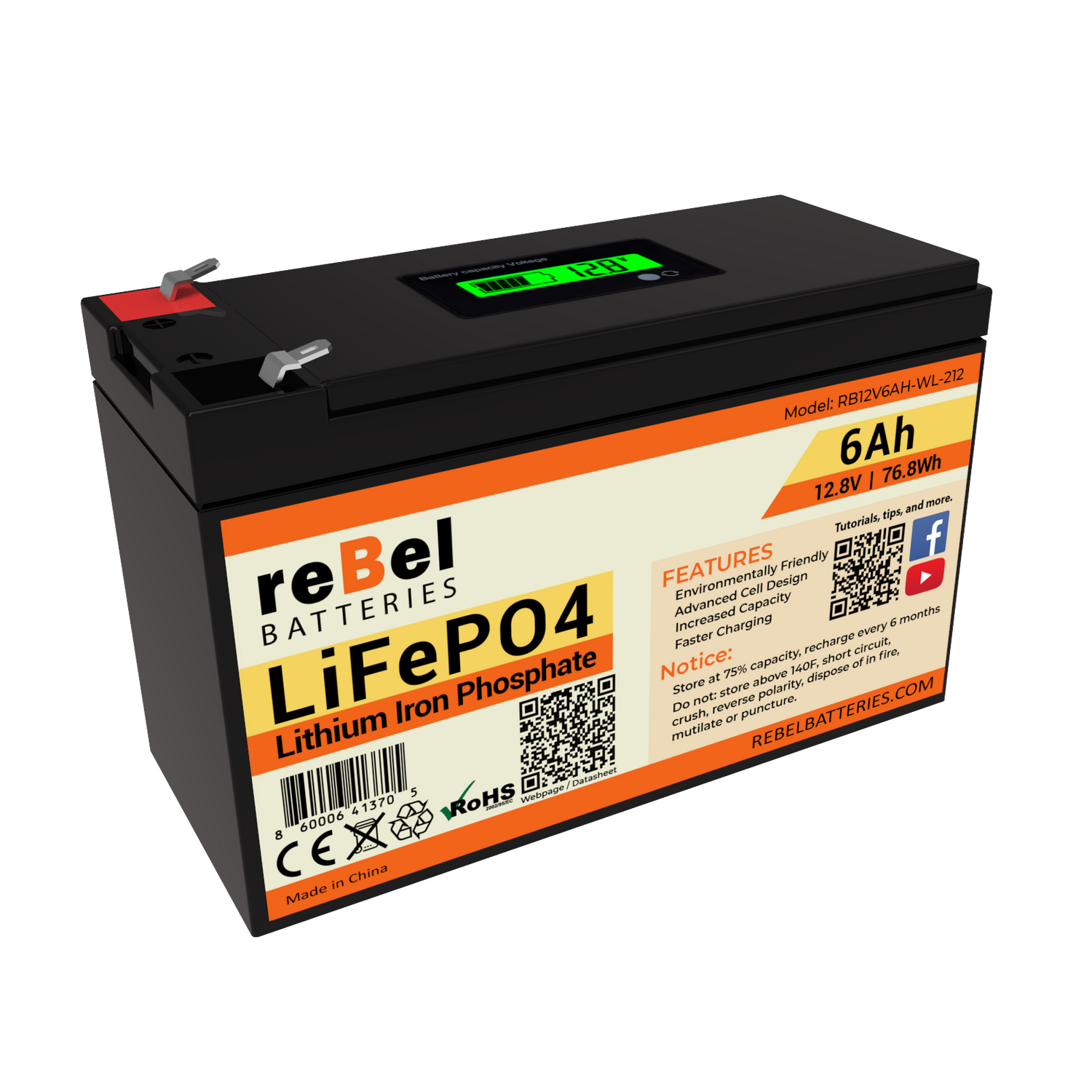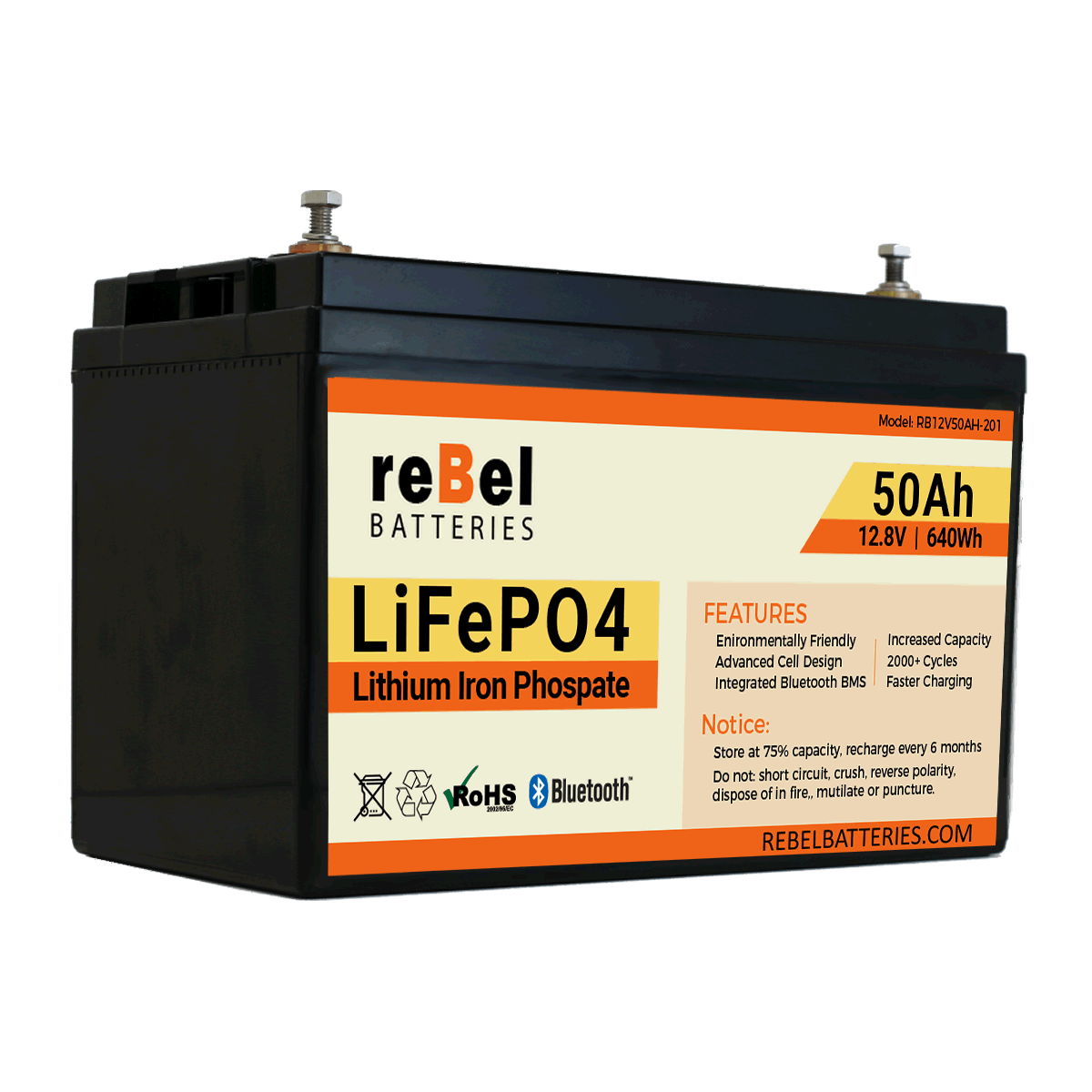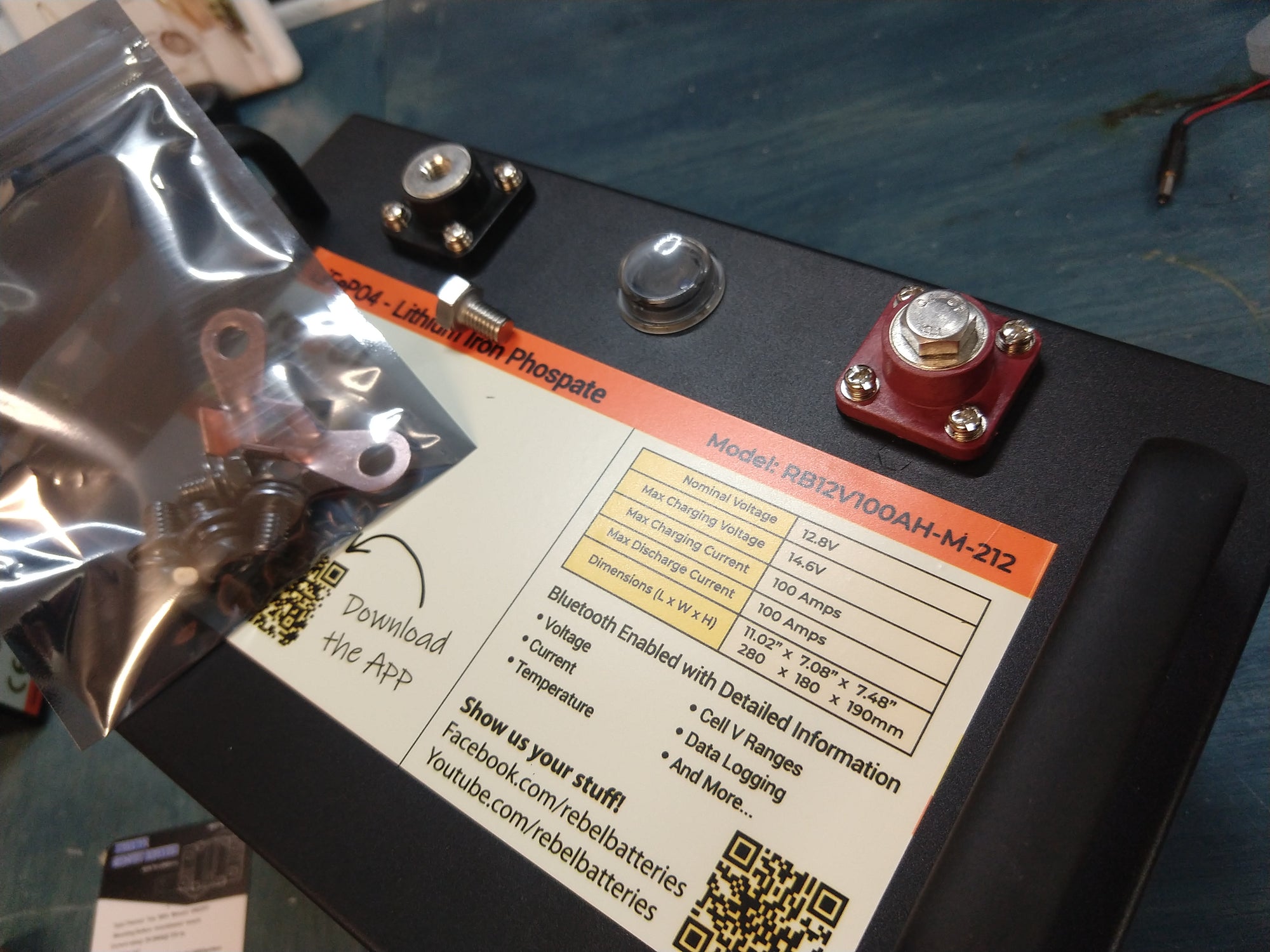Can the 6AH LiFePO4 and 12AH LiFePO4 reBel batteries be used with a power inverter as long as you don't exceed the batteries rating?
Yes, but there is one caveat. If you're using a large power inverter the capacitor in the inverter might trip the short circuit protection when you connect the inverter because of the high inrush of current. I know it will on the 6AH battery. An inverter up to 500 watts probably won't, mine doesn't but anything larger might. With any large inverter you should charge the capacitor before connecting it to the battery. To do this either use a small one amp battery charger and connect it to the inverter for a few seconds or use a resistor to charge the capacitor from the battery. Then connect the inverter to the battery and it should work fine as long as you don't exceed the batteries discharge C-rating. Always use eye protection.
What size resistor should you use? Thirty ohm 25 watts is the size I use.
Do I have to use a resistor if using a large battery?
For safety even when using a large battery you should always charge the inverters capacitor before connecting it to avoid sparks, the risk of tripping the batteries overload protection and most important for your own protection. When sparks fly if there's an ark which there most likely will be with a large capacitor hot metal could hit you causing serious injury. Even with eye protection it could still hit you somewhere else so always practice safety first.
If you do trip the overload protection on the reBel 6AH battery you have to connect a charger for a second to get the battery to turn on again. I assume the same is true for the 12AH but I never tripped that one so I don't know that for sure. I needed a way to test the short circuit protection on the 6AH battery so I could tell someone it works and my 1500 watt inverters capacitor did the trick proving it does work and is very fast to react to a short circuit. To do that test I used a heavy duty switch so there was no danger which brings me to another thing you have to consider if using a large inverter with one of these small batteries. If you use a switch to disconnect the inverter from the battery you will probably have to charge the capacitor every time before turning the switch on to avoid tripping the overload protection. You can avoid this by adding a resister using a pushbutton momentary contact switch. Just press the button for five seconds to charge the capacitor before turning the switch on, it works great.
If you're reading this knowing very little about circuits, a short circuit is different from an overload. While it is still overloading the battery a short circuit is an instant massive overload. A large capacitor is many times seen as a short when connected to a small Lithium Iron Phosphate battery because their short circuit protection trips at a much lower amperage than a larger battery does. Because for a short time the capacitor draws so much current so fast the battery thinks it's a short. A normal overload is when something is working correctly but draws more current than the battery is rated to provide. The reBel batteries permit an overload for a short time to cover for things like the heavy start load of an air conditioner. While this can be several amps above the batteries rating for a few seconds it's not seen as a dead short across the terminals. The reason the capacitor in small power inverters usually won't be seen as a short is because they don't draw a high current long enough. For that same reason a large battery capable of withstanding an overload longer may not see enough current drawn from a large inverters capacitor to trip its short circuit protection giving more time for sparks to fly if you don't charge the capacitor first or use a switch to connect the inverter.
Do I have to charge the capacitor first if using a switch when connecting my inverter to a large battery?
Its not a bad idea to. I've heard it's possible to damage the BMS if you don't but I never do when using 12V inverters and haven't had any problems. These batteries are suppose to protect themselves against loads like that. If I was using 24 volts I probably would charge the capacitor first though because those inverters use a pretty large capacitor. If your inverter is going to be always connected to your battery the capacitor will always be charged so you don't have to worry about it.
If I disconnect the inverter for a couple minutes do I have to charge the capacitor again before connecting it?
That depends on your inverter. Some units have a small internal load that will discharge the capacitor. Others have an internal load like a small power led or gage that is still on when the inverter is off. Then others have computer controls that are active even when the inverter is off so they can be monitored or turned on from another area. Any load when the inverter is off will discharge the capacitor quickly when the inverter is disconnected. But many inverters don't have any internal load. The capacitor in those inverters will stay charged for some time after they're disconnected. As a rule of thumb to be safe it's always best to use a charge resistor before connecting the inverter unless you are using a switch or a circuit breaker that is off when you connect the battery.
If using a large battery can I just use a pushbutton switch without a resistor to charge the capacitor?
If your inverter is connected with a circuit breaker that's basically what you're doing when you turn the breaker on. So you could but unless you're using a heavy duty switch you won't be doing the switch any good and as mentioned earlier I have heard it's possible to damage the BMS although I have never heard of that happening. With 12V inverters you could probably get away with just using a switch to charge the capacitor but I wouldn't try that when you use 24V or higher because you might destroy the switch while a circuit breaker is capable of handling that kind of load.



